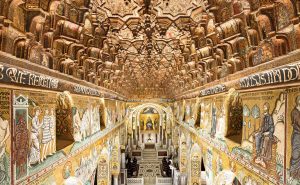Tales of Sicily – An historic Sicilian Journey through music of the past
By Giovanni Vallone
Ciao a tutti my name is Giovanni Vallone and this is a new episode of Tales of Sicily – An historic Sicilian Journey through music of the past
I want to tell you Sicily through the music, trying to imagine the events happened in Sicily when there was the composer we are speaking about.
It’s a chance to know either, Sicily and artist.
So close your eyes, travelling the past together with me.
Bon voyage.
We are in the eighth century, when lived Abu Hasan Ali ibn Nafi (789-857), better known with the nickname Zyriab that, in Arab language, means: “blackbird”.
This because Zyriab had a black-green skin and his singing was melodious like a bird.
At that time Sicily passed from Byzantine to Arabs rulers.
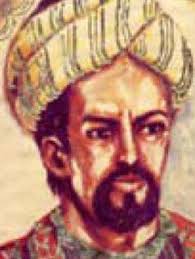
He was a very important man and for this reason many Arabian countries claim his birthplace.
A bit Persian, a bit African, a bit Kurdistan
But the most likely hypothesis is that he was born in Baghdad.
So, in this way, we make happy two countries: Iraq (to which Baghdad belongs today) and Iran (to which belonged at Zyriab’s times)
We haven’t nothing of his works since all was destroyed during the Berber siege of Cordoba in 1031
Zyriab is universally recognized as the founder of that kind music full of embellishments, magic, mystery, sensations: the Arab music.
But for now, let’s stop our tale just for a moment, plunging ourselves in the world of Zyriab.
So, close your eyes imaging to be in a casbah, among turbans, sultans and minarets.
We’ll do this thanks to the voice of Zyriab’s offsprings, the so called “4 big of Arabian music”: Umm Kulthum, Abdel Halim Hafez, Muhammad ʿAbd al-Wahhāb e Farid al-Atrash
Let’s begin with Abdel Halim Hafez, the Egyptian singer-actor, el-Andaleeb el-Asmar, the dark-skinned nightingale.
Maybe he received this nickname in order to recall the big master, Zyriab, that was called blackbird.
He never got married and the day of his funeral four women committed suicide.
There isn’t day, still nowadays, that an Arabian network does not broadcast a song of Abdel.
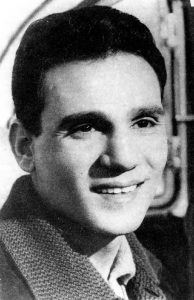
Zyriab was a virtuos musician that lived in Baghdad, one of the biggest metropolis of the VIII century. Art, culture and luxury housed in the Persian caliphate.
The young artist was the pupil of his scholar, such Ishaq al-Mawsili.
To be short, Zyriab one day met the Caliph that required to sing and play for him.
Zyriab asked the Caliph to play his own oud, or lute if you prefer, instead that one of the scholar.
Harun al-Rashid, the Caliph, asked why and Zyriab said: because my oud has been built by myself. It has strings made by the intestine of the lion, that are more melodious that the silk one; and, most of all, I have added a more string between the second and the third.
The caliph agreed and Zyriab began to play and to sing.
The astonishment of the caliph was big ! Immediately he called Ishaq admonishing him to totally dedicate himself to the teaching of this guy almost reproaching him to not letting him never listen.
The story, at this point, it’s always the same.
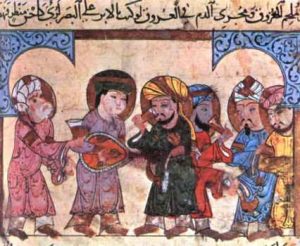
The teacher was jealous of Zyriab threating him to immediately leave Baghdad.
And so Blackbird, took the bassoon and left Baghdad.
A life of surprises was waiting for him !
And now, with a big leap, we arrive in Sicily looking what happened in the island in the ages of Zyriab.
He gives us the opportunity to speak about the Arab ruling in Sicily, the most impressive over the centuries.
Sicily had about 10 rulers in its history. Arab ruled for almost 2 centuries.
No one have had, here in Sicily, the same great influence they had.
Even if their reign was not so long compared the others.
In Sicily Arabs were innovative, alchemical, and they had a big influence in the island
Till nowadays an echo of Arabian style spreads in this country: names, last names, popular music, words, food, lifestyles … recall the Arab world.
The towns of Caltanissetta, Caltagirone, Caltavuturo, etc, derive their name from “Kalat”, castle; the towns of Marsala, Marzameni, etc from “Marsha”, harbour; Gibellina, Gibilmanna, Gibilrossa etc from “gebel”, mountanin; the towns of Racalmuto, Regalbuto, ecc from “rahal”, hamlet and so on.
A lot of words are of Arab origin: funnacu (farmhouse), fastuca (pistachio), zagara (the flower of orange and lemon trees), zibibbu (a sort of grape), giggiulena (sesame seeds).
Many last names as Badalà or Vadalà (servant of Allah) Fragalà (joyfulness of Allah) etc.
We can also see the Arab influence in the so typical narrow streets of many Sicilian towns that recall the Casbah.
And also the Sicilian dialect is a mixture among Arab, Spanish and Italian.
Many Sicilian dishes have a strong Arab influence like the couscous, the cassata, the arancini, the agrodolce etc
Sicilians are Arabs in everything, in the essence of their life and soul, in the geniality of their art, in the one thousand colors of their thought.
Sicilians are Arabs grown up under the Christian empire.
And Zyriab have totally lived the Arab wave in Sicily.
Probably he knew all the characters of this saga: the Byzantine betrayer Euphemius; the Arab war-leaders Ibrahim al-Aghlab and Asad ibn al Furat; the historician Ibn al Athir and the Palermo’s caliph Abua ibn Abdallah.
Ziryab for sure beheld the fleet that on June 14, 827, left the port of Susa, in Ifriqyia for Sicily, to Cape Granitola in the nearby of Mazara del Vallo.
Asad conquered Palermo on March 832.
At that time, in Sicily, the situation was actually bizarre.
Maybe it was the first cosmopolitan nation of the world, since there lived, all together and peacefully, Christians, Greeks and Arabs.
Consequently, there were 3 languages: Latin, Greek and Arab.
There are many testimonials of this fact but maybe the most impressive is that one in the Palatin Chapel, in Palermo, where there is a trilingual inscription that commemorates the building of a “horologium” (clock) in 1142, under King Roger II, and shows how different cultures were living side by side at the time without any “culture clash”.
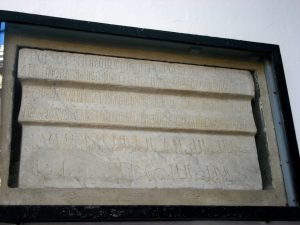 Palatina chapel, Palermo:trilingual inscription
Palatina chapel, Palermo:trilingual inscription
Churches and mosques stand one close to others, like in a fable of the most optimistic of the novelists !
In fact, Arabs were absolutely tolerant with the Christians.
For Sicily was a period of richness and innovation.
The people of Maometto brought, among others, the cultivation of the orange, of the lemon … an ingenious hydraulic system, for the countryside but also for the towns.
Still now in Palermo we can admire the so called Qanat, a sort of underground aqueducts.
Renowned were the “garden of earthly delights”, wonderful park of threes, fountains, lakes, waterfalls inside the luxurious palaces of the sultans.
Their colorful and convoluted art and style, has something fascinating and inexplicable.
Even the Normans, the people who defeated the Arabs in the XII century, asked for Arab architects, skilled workers and engineers for their construction giving birth, in this way, to the enchanting Arab-Norman style, that here in Sicily has several examples, mainly in Palermo.
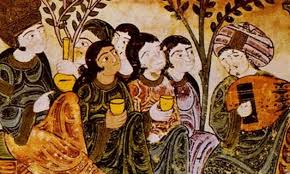
Now we are ready to listen again to the Arab music.
So, close your eyes and travel back in time, here in Sicily, when nights were black and candles lit the humble houses of the Sicilians.
And we do it with the Queen of the Arabic music: Umm Kulthum
Her albums still nowadays are among the most sold in the Arab world.
She was so virtuous that, when she was 12, her father disguised Umm like a boy to allow her to enter in the theatrical staff he run.
Egyptian government used to break off the works during her radio’s concerts.
Her funeral was an epochal event.
More than 10 kilometers of queue followed the procession !
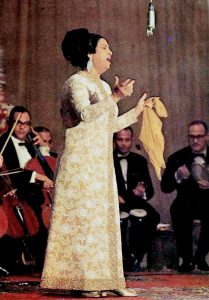
And now, we are again to tell about Zyriab and Sicily at his age.
Banished by Persia, as we said before, Blackbird arrived in Ifriqiya, which corresponds, to the present day, to Tunisia, a small area of Algeria and a small area of Lybia.
Here Zyriab was hosted to the court of the caliph Ziyadat Allah, a powerful man in the Mediterranean area.
The Arab music, as we know it today, began its path through the history.
So, we are in early IX century, and I’m imagining Zyryab at the court, playing for the caliph Ziyadat Allah I and for Asad ibn al-Furāt, that a little later would carry out the landing on Sicily.
Now we are in the rooms of the caliph …
I’m seeing Zyriab performed the oud, I’m lietning to his melodious voice, there are sinuous women dancing, the smell of the incense, wine and lavish meals.
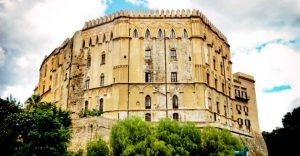 Palermo, the Real Palace: Arab-Norman art
Palermo, the Real Palace: Arab-Norman art
Ok stop !
Let’s back in Sicily, to see what happened in the same moment.
Luckly, we have many testimonials of those times, thanks to several tales by Arab travellers.
They were tireless, many and curious.
They travelled along the Islamic reigns telling everything they viewed, sometimes honestly sometimes pompously.
The titles of their book, seemed to introduce to a fable: “Golden lands and gemstone mines”, “Book of roads and kingdoms”, “The pleasure of him who longs to cross the horizons” and so on.
Al Masudi, in 957, tell us about the Bahr ar Rum, the Mediterranean sea or, better: the sea of the Rum, the Romans.
Another Arab authors, such Istahri, tells us that Sicily is 7 marhal length, that is: 7 horse riding days. He speaks also about the abundant fertility of the Sicilian land and its wealthy maritime trade.
Now is the time of ibn Hawqal, maybe the most important of all that visited Sicily from 973 to 976.
From his Kitab al Masalik, “Book of the roads and kingdoms”, we may have a good picture of the island at that time.
He commends Palermo, the new capital of the island instead of Syracuse, that was the former capital, for almost 1500 years.
In Palermo, says Hawqal, there are 5 hamlets and in the Qasr (today Il Cassaro) there is a mosque where once stand a Christian church
He speaks about the Halisah (today La Kalsa) where there was the settlement of the Caliph, and many baths. So loved by the Arabs.
Haqal tells us that in Palermo there were many rivers where grew the Papyrus.
At that time Palermo was one of the most important town of the Western world.
There were almost 300 mosques and 250.000 inhabitants (at Rome they were no more than 30.000).
Its outdoor market, the As simat, was one of the most renowned in the Mediterranean.
Hawqal was impressed by the passion of the Sicilians for the onions !
He says: “They are greedy of onions. Each Sicilian eat onions night and day. And this is not a good thing, since it spoils the senses !”
Who knows why Hawqal was angry with the onions !
Still nowaday, a salade with onions, tomatoes, olives, ricotta salata and basel is a very Sicilian salade.
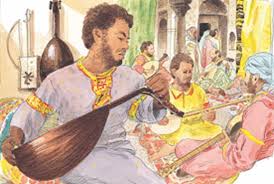
However, we have told about Edrisi in the episode regarding Hildegard von Bingen.
Ok, now we are ready to listen to the Arab music again
And we do it with the third pillar of Arab music: Muhammad ʿAbd al-Wahhāb
Actor, musician and author, in 1950 composed the Libian hymn.
Was the 822 when Zyriab won his life’s lottery, going to the court of Al-Hakam I in Cordoba, Spain, the great capital of the Islamic empire.
Al-Hakam heard about this virtuous player and asked for him.
When Zyriab arrived, Hakam just dead, but his son, ar-Rahman II gave honor to his father request, and welcomed Zyriab to the court.
Not only !
He named Blackbird as chief of the culture.
And was here, at Al Andalus, or Cordoba for the younger, that Zyriab expressed all his talent.
Was here that we can find the roots of the modern Arab music.
Sicily, even in Al Andalus, again recurred in Zyriab life.
In fact, on 830, ar-Rahman II sent a fleet to Sicily in helping the Arabs who were fighting for the whole conquer of the island.
And, why not, maybe Zyriab was at the port in the moment the boat left, and maybe he composed something for the event.
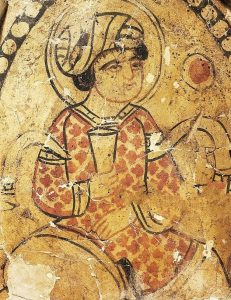
In Sicily there were many little lordships ruled by the “Kadì”.
Christian were not obliged to dismiss their religion, but they had to pay a fees called gezia that allowed them to practice their religion.
The Arabs shared the islands in 3 districts: the Val di Mazara, on western side; the Val di Noto on southern side; and the Val Demone, on oriental side.
During the two centuries of their realm, Arabs gave Sicily poetry, culture, monuments.
But now, let’s travel back in time, trying to breathe Sicily at the ages of Zyriab.
We’ll do it with another pupil of Zyriab, the fourth of the great Arab singers: Farid al-Atrash, a Druze, that religion between Christianity and Islam, born in Egypt in the same time of Zyriab, thanks to the imam al-Hakim
During his career, Farid al-Atrash, had a big success, recording more than 500 hundred songs and playing almost 40 film.
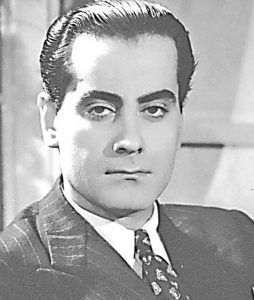
So, we have told you Sicily during the late first millennium of the history.
Is maybe this Oriental atmosphere that “Thrill of It All” who have ever captured the mind of the visitors along all the ages ?
Or maybe was the food ?
But even the food, in Sicily, has a Arab origin !
I’m thinking to the Cassata, the agrodolce sauce, the frutta martorana etc
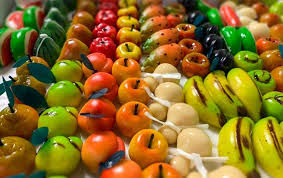
How many Arab things one can notice in Sicily.
In Palermo the narrow streets of the historical center and some pink domes of a church that once was a mosque.
In Sambuca di Sicilia there is a real Casbah in the upper side of the town.
In Trapani, Marsala etc all reminds African atmospheres.
In Mazara del Vallo the cous cous and the harbor recall the Ifriqiya.
Taormina, the wonderful Taormina, is a sort of Arab pearl in the Eastern cost of Sicily.
Have you ever been in Lampedusa, that is at the same latitudes of the African desert ?
Here you can feel the so called “mal d’Africa”.
Sicilians are friendly, smart and poets.
The color of their skin is a bit white, a bit black and a bit green.
The Arabic DNA always flows in the blood of Sicilians and in the land of Sicily.
I think you have to go there to better understand this.
